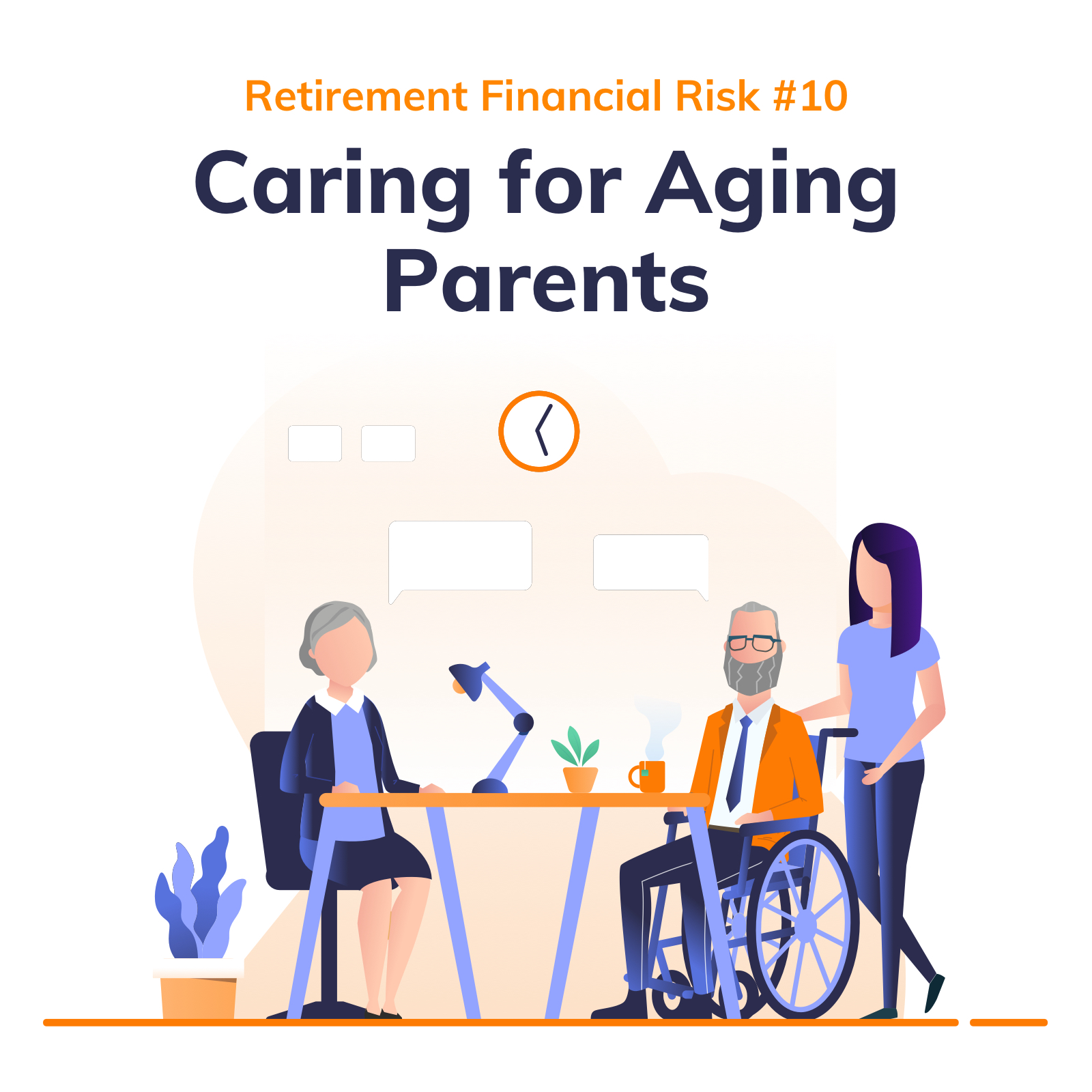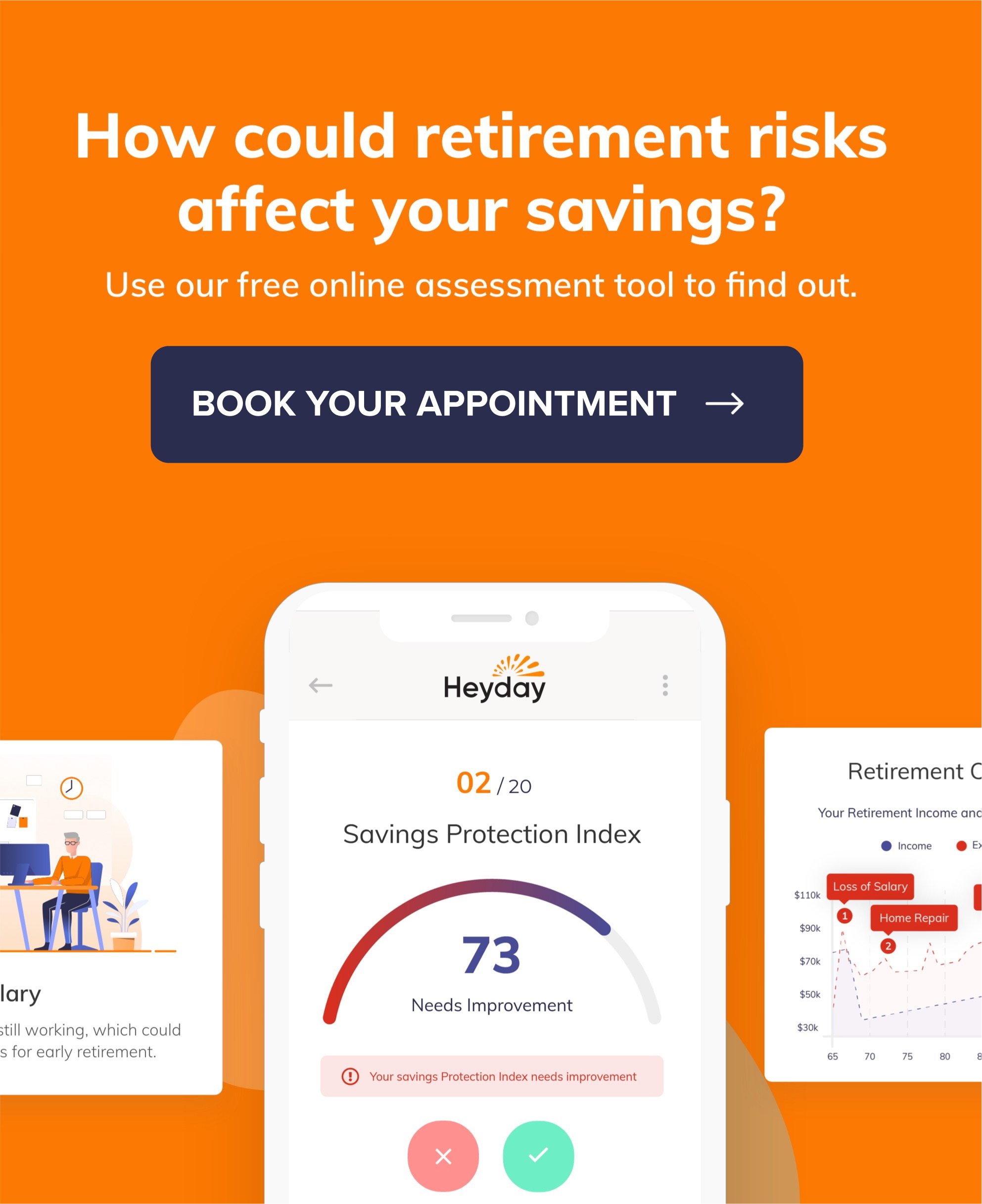Retirement Risk #10: Caring for Aging Parents — A Costly Challenge
Elder Care for Your Elders: Addressing Something Many Retirees Don’t Think About
The longer we live, the more money we need in retirement.
The same is true for our parents, who may need our help more than any of us had originally planned.
As longevity continues to increase due to healthier lifestyles and medical and technological advances, our finances — and our parents’ finances — need to work harder to keep up.
In many cases, aging parents may need financial caregiving support as their health declines and their retirement savings dwindle.
“Our parents are living longer, and while this is a great blessing, helping financially can be a difficult, unexpected expense — especially for early retirees.”
— Eric Stratton, Heyday founder
A Snapshot of Caregiving in the U.S.
How common is caregiving for the family today?
According to research by AARP and The National Alliance for Caregiving, here’s what it looks like in 2020:
- 53 million Americans are providing unpaid care
- 1 one in 5 is providing this care to an adult with health or functional needs
- 34% of family caregivers are boomers
- 61% of adult caregivers still work
- 45% have had at least one financial impact due to caregiving
- 23% say caregiving has made their own health worse
Navigating Two Retirement Paths at Once
Costs for providing care for elderly parents isn’t something most of us planned for when trying to grow our retirement accounts — it’s often hard enough to save up for you and your spouse alone!
The emotional and financial stress can quickly take its toll when considering the average price tag of helping aging parents with the care they need:
-jpg.jpeg?width=600&name=Risk%20Article%20Caring%20for%20Aging%20Parents%20(1)-jpg.jpeg)
For many in this situation, it can feel like a full-time job on top of the one you’re getting paid for. When faced with this challenge, pre-retirees and retirees may choose to:
Retire early to care for parent(s) full-time - those who are close to their planned retirement age may opt to retire early and care for aging parents. Yet, claiming Social Security before your full retirement age (FRA) can reduce payouts for life. And you could also lose out on monthly income and growth in retirement savings by having less income to contribute.
Take a few years off to care for parents themselves - slightly different than retiring and drawing Social Security or other benefits, this approach involves taking a temporary hiatus from working. While it may help the pre-retiree save on some in-home care costs, the adult child could be losing out on their future lifestyle in many ways:
- Losing monthly income to cover their own bills and save for retirement
- Missing out on any employer-matching of retirement accounts
- Reducing their overall Social Security benefits, which are based on how much they paid in throughout their career
Work longer than planned to subsidize parents’ care - delaying retirement can help foot the bill for parental care, but it also can add to the mental and physical toll of being a part-time caregiver.
Dip into their retirement savings - this option is the most concerning option, as most retirees should prioritize their financial livelihood. Any large withdrawals can diminish the longevity of their nest egg, and may also incur a large income tax bill.
Take on debt to cover the extra expenses - for some who are struggling to pay for their parents’ care, credit cards will seem like a lifeline for covering the bills. However, this approach isn’t sustainable and could cost more in the long run due to interest payments and ongoing monthly bills.
For example, Matt and Julie have been disciplined savers for retirement their whole careers. Now, they’re only months away from finally retiring at 67 and 66.
While they have what seems like a healthy amount of savings, they didn’t account for his mother’s stroke at 84. Now, she requires constant care for everyday tasks. They want to care for his mother, but don’t want to spend the bulk of their nest egg on her care, nor do they want to provide everyday caregiving for her themselves.
What should they do?
They could take on debt that could impact their retirement income later.
Or withdraw from their retirement accounts and limit their own financial future.
They could also have her move in with them, which will still impact them financially. Yet, it could also limit their ability to enjoy those early retirement years.
Of course, this is not an easy problem to solve. And as Americans continue to live longer, more children may be faced with this challenging situation.
Pre-retirees should consider weighing their options with a financial professional and their parent(s) to develop an action plan.
They can also utilize an online risk assessment to determine how their retirement savings may last when hit with parental caregiving costs and other large expenses.
Take Heyday’s Custom Retirement Review and discover your Savings Protection Index in only a few minutes. It can be an excellent way to evaluate your current strategy and make any adjustments before you retire.
*Based on two visits/day to administer medication at the national median rate of $87.50 per visit.

Written by Cindy Collins
Forbes Contributor & Retirement Financial Professional
Cindy Collins is a Heyday Retirement contributor with over 30 years of experience in personal financial services.

About Heyday
Heyday is a premier source for comprehensive tools and informative content designed to help retirees build a secure retirement income plan.
Subscribe
Stay in the know on a wide range of retirement topics.








